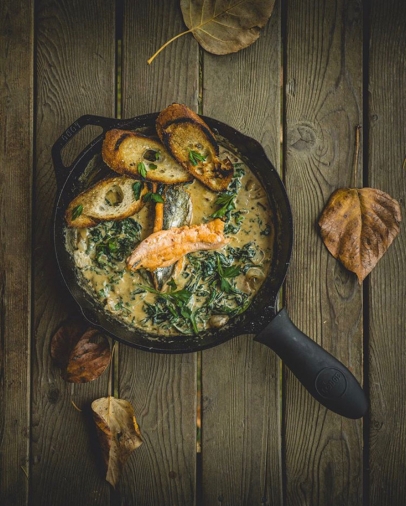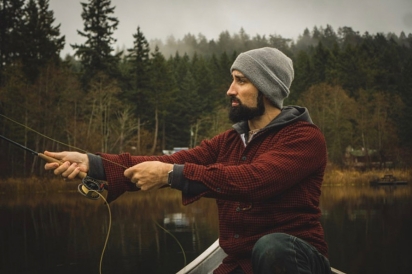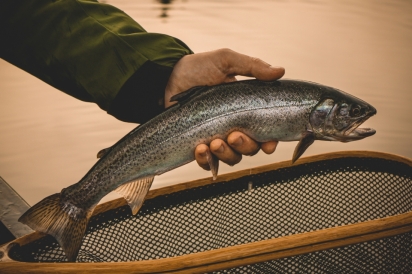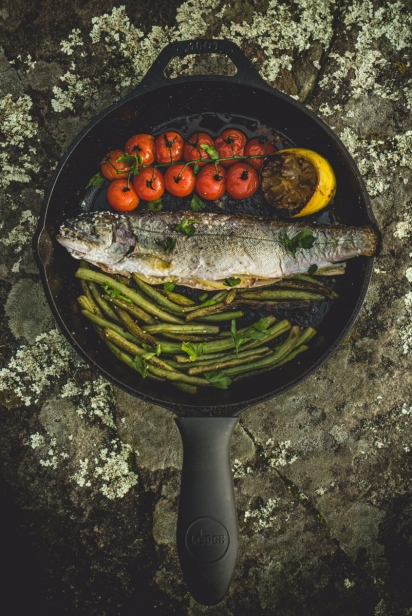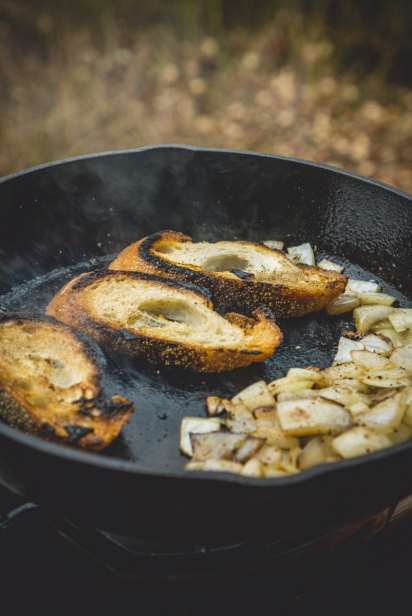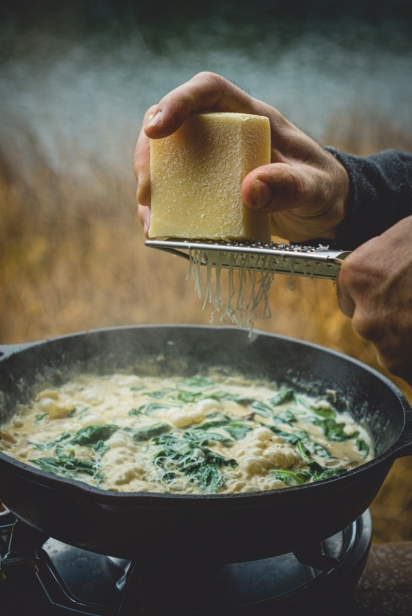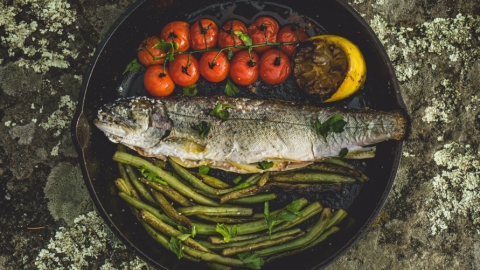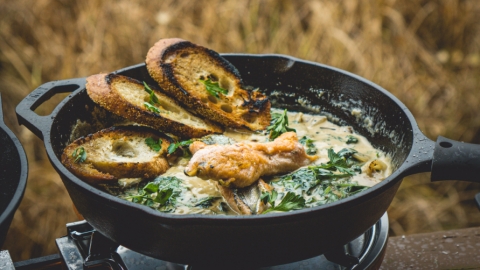Cast, Catch and Cook
Canoeing Salt Spring Island’s Cusheon Lake on a crisp autumnal afternoon, fly rod in hand, I took in the quiet serenity of the lake. After hours of stillness, the lake suddenly echoed with the screech of line being peeled off my reel. After a tense back-and-forth, I managed to wrestle a beautiful cutthroat trout close enough to the canoe to be scooped up in my net. I had set out hoping to catch one of these local trout and came prepared for success with the kit and ingredients to cook up a meal for my family.
This has become our weekend ritual: setting out to explore new fishing spots with optimism and recipe ideas in tow. My wife and I lead fairly typical fast-paced-city-dwelling lives, sitting at desks during the week and exploring B.C. on the weekends. For all intents and purposes, we are so-called “weekend warriors”. I grew up in an outdoorsy family, where I was exposed to a great deal of fishing and camping. This laid the groundwork for my interest in fly fishing and cooking; both on the water and in the kitchen, my approach is guided by exploration and experimentation.
This means thinking beyond hot dogs and marshmallows when it comes to camp food. Don’t get me wrong—both are great (and nostalgic) in their own right. But with the appropriate equipment and a bit of forethought, outdoor meals can be taken to the next level. The “catch and cook” approach captures the essence of enjoying the outdoors, particularly when done in the company of friends and family. And on Vancouver Island and the Gulf Islands, with no shortage of fish-filled lakes and idyllic camp spots, we are well-positioned to procure local flora and fauna and get creative with outdoor cooking.
For me, the concept of “catch and cook” comes down to a few key points, starting with choosing your location. If you’re hoping to catch fish, finding a lake that has a sustainable population of fish is important. A good starting point is www.fishingbc.com, which is an excellent resource for information on locations, regulations and licences. Local fishing shops are also great places to learn regional tips and tricks from seasoned experts.
It only takes a few simple ingredients to elevate your shoreside meal, so prepare your ingredients ahead of time to keep packing to a minimum. I like to bring high-quality salt, a pepper mill, some sort of citrus, an herb (usually parsley) and oil or butter. I always have a cast-iron pan or two on hand, as well as a fish spatula, a good folding knife and a lightweight cutting board. Check your local regulations about open fires or use a good quality propane stove.
Finally, expect the unexpected—if you are only relying on catching fish to eat, you will probably go hungry! I usually plan meals to be feasible as a vegetarian dish in case the fish aren’t biting. Cooking outdoors over an open flame also introduces many variables, so be prepared to make temperature adjustments on the fly.


